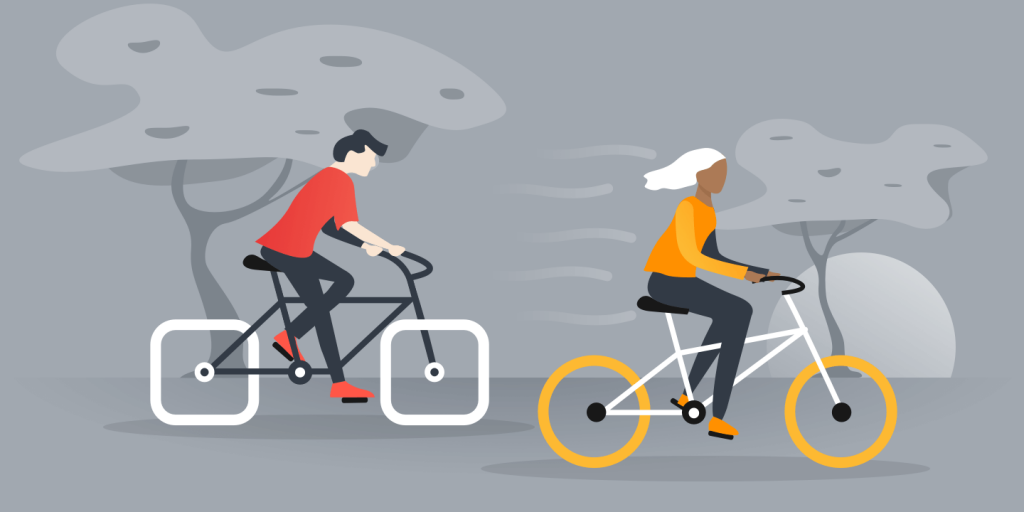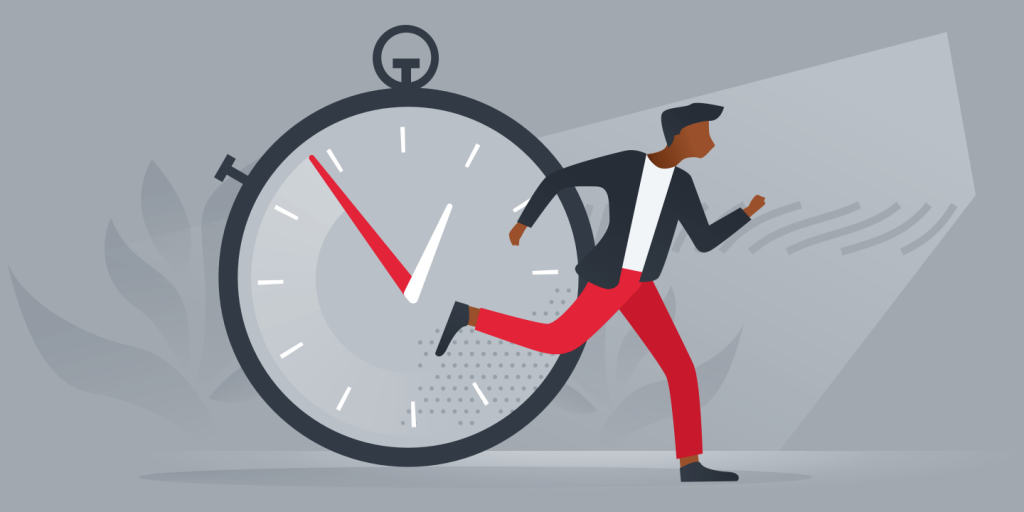While you definitely deserve a reward after completing a task, sometimes the reward can come before.
While trying to write this article, and with its deadline looming in the horizon, I looked at the status of an order I placed a couple of days ago, I chatted to a friend about her new leggings, I searched for flights for my next trip, and I peeked at my Instagram notifications (big mistake – Instagram is the equivalent of a black hole). I even considered baking a loaf of banana bread, also known as procrastibaking.
Eventually, I had to face reality: I had to stop procrastinating if I wanted to finish this article in time. Some scientists say that chronic procrastination is now so serious a condition it needs to be recognized by clinicians. A medical condition or not, the main problem with procrastination is that it prevents you from doing what needs to be done. That means potentially missing a deadline, losing a client, failing an exam, or simply not feeling great about yourself.
The good news is that you can win the battle against procrastination. In celebration of National Fight Procrastination Day, we’ve compiled a list of eight tips to help you do what you’ve been putting off and Just.Get.It.Done.
 Pick the time when you’re most productive
Pick the time when you’re most productive
Early bird or night owl? We all have our cycles when we are at our best to work and when we need to rest. Observe your rhythms to find out when you feel more awake and when you’re in “low mental energy” mode. Use that to your advantage – if you know you’re most productive and energetic in the morning, use that time to focus on tasks that require a little more mental work. Leave chores that are less demanding for those periods where you aren’t as energized.

As you can see in this chart, there’s no one-size-fits-all daily routine. We all have chunks of time when we feel more activated and others where we are less alert. Use this knowledge to your advantage.
 The two-minute rule
The two-minute rule
In his book Getting Things Done: The Art of Stress-Free Productivity, productivity guru David Allen introduced the now-famous idea of the “two-minute rule.” The concept is pretty straight-forward: if a task can be completed in two minutes or less, it’s much more productive to do it right away than adding it to your to-do list, as that will take even more time to organize and review later on.
By completing those tasks that you can get out of your way quickly, you’ll also achieve a sense of satisfaction that will animate you to continue staying productive.
 Break down big projects into smaller tasks
Break down big projects into smaller tasks
It’s easy to get discouraged at the thought of having to complete a large, complex, project. Just thinking of the huge effort it’ll require can be a blocker for some people. But you have to remember that Rome wasn’t built in a day – and even the biggest of projects can be divided into smaller, achievable tasks.
For example, say you need to organize a photoshoot for a new campaign. While it can feel daunting when you think of everything you need to manage, if you break it down into smaller tasks, like listing the technical material, renting the studio, etc. it’ll be much more manageable. Divide and conquer – one task at a time.
 Use the Pomodoro technique
Use the Pomodoro technique
The Pomodoro technique uses a timer to break up your work into focused time blocks (usually 25 minutes). In between work, you can take a short break, usually five minutes. After four consecutive working blocks, you can take a longer break of around 20-30 minutes. By using this work-reward methodology, you can boost your mental activity while at the same time rewarding yourself with breaks after completing a working block, so you can be more efficient and procrastinate less.
 Plan a realistic to-do list
Plan a realistic to-do list
Nothing beats the feeling of accomplishment that comes with crossing something off your to-do list. Writing down your tasks in a great start to complete them, but it’s essential to be realistic about how much you can achieve. Making an endless to-do list can be counterproductive because you can get discouraged in the beginning. To avoid that, try to calculate the time you spend on each task so that you know what you can achieve. Then, at the end of the day, compare the time you thought you were going to spend on a task with what you actually did.
Don’t worry if you overestimate how long each activity took, as this will then give you more room to plan. And of course, don’t forget to be patient with yourself – every step, even small, counts toward your goal.
 Take the first step
Take the first step
Back when I was a procrastinating student at university, I used to tell myself that the most challenging part of studying for an exam was to sit down for that first time. Getting myself to actually take a seat and open the book was tough. However, it wasn’t that difficult if I saw the book open at the right page, with my notes nicely positioned next to it and the markers ready to be used. In other words, when I had created an inviting environment, I found it much easier to bring myself to take a seat and start studying.
Getting started is the hardest part, but you’ll have the momentum to do the rest once you’ve taken the step. Don’t let negative thoughts sabotage your motivation and delay the activity. Start with small tasks to jumpstart the process: for example, you can write the subject of an email or book the room for your next meeting.
 Take responsibility
Take responsibility
It’s easier to put off a task if no-one is waiting on you to do it. It’s a different story if you know that what you do will affect other people. Typically when you commit to doing something for others, there’s less of a chance that you drop the ball on it. You can use that to your advantage – share the projects you’re about to embark on with your team or talk to friends about a personal goal you want to achieve. Committing to other people will help you to stick to your promise of getting it done.
 Reward yourself
Reward yourself
After weeks of putting it off, you found the strength to compile the year’s invoices so you can file your taxes. Congratulations! You deserve a reward.
When you let yourself enjoy the fact that you’ve made progress, you’re essentially giving yourself extra motivation to complete subsequent tasks. In this way, your brain will associate the completion of a piece of work with your gratification. This will motivate you to continue doing what you’re doing.
While you definitely deserve a reward after completing a task, sometimes the reward can come before. I often treat myself with working from my favorite cafe when I have to complete a task I find less appealing. For example, say you know you need to make travel arrangements for a conference – something you find boring. Take your laptop and work from your favorite cafe can give you the stimulus you need to complete that task, vs. doing it from your regular home office environment.
Often, we end up putting off tasks not because we’re overworked but because we haven’t got the right priorities in mind. By working on those tasks that require your attention instead of those that seem more comfortable, you’ll have a feeling of satisfaction every time you finish a job, and that process will be more pleasant.
“Putting off an easy thing makes it hard, and putting off a hard one makes it impossible.” – George H. Lorimer












